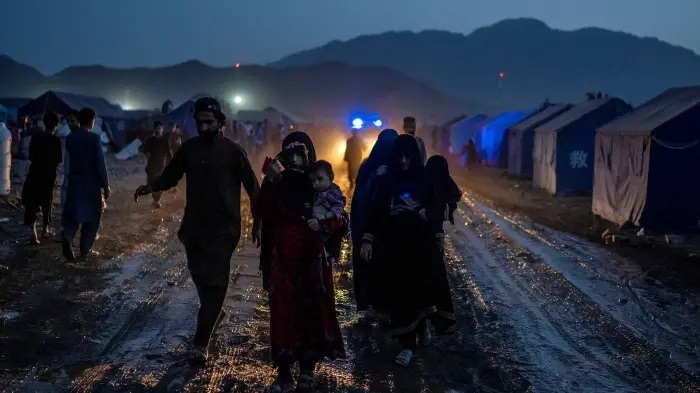In the wake of the Taliban’s return to power in 2021, Afghanistan has been thrust back into an era of intense repression and systemic human rights abuses. The once hopeful aspirations of millions have been replaced by fear and despair as the Taliban impose a regime reminiscent of their brutal rule in the late 1990s. At the forefront of this regression is the Taliban’s relentless assault on women’s rights, media freedom, and civil liberties—an agenda that signals their perennial obsession with a patriarchal and authoritarian vision of society.
A Repressive Legal Framework
Latest reports say that under the directive of Hibatullah Akhundzada, the Taliban’s reclusive supreme leader, the regime has formalized a 35-article legal framework that squarely dictates the behaviour and rights of Afghan citizens. These laws, enforced by the revived Ministry for the Propagation of Virtue and the Prevention of Vice, mark the first comprehensive codification of the Taliban’s vice and virtue policies since their takeover in 2021. The ministry, notorious for its role in the Taliban’s previous rule, is now more powerful than ever, wielding its authority to enforce draconian rules across all aspects of public and private life.
Central to these laws is a series of decrees that specifically target women, aiming to get rid of their visibility and voices from public life. Women are now required to be fully veiled in public, with their faces obscured to prevent what the Taliban describe as ‘temptation.’ The laws also forbid women from being seen by men who are not close relatives, enforcing a strict regime of gender segregation. Clothing must be neither thin nor tight, and any attire deemed ‘short’ is strictly prohibited. For the full text Read
Afghanistan’s Descent into Darkness: The Regressive Rule and the ‘Talibanning’ of Human Rights – The Geopolitics

K.M. SEETHI is Director, Inter University Centre for Social Science Research and Extension, MG University. He also serves as Member of the Appellete Authority (Ombudsman), MGNREGS, Govt of Kerala. Earlier, he served as ICSSR Senior Fellow, Dean of Social Sciences and Senior Professor and Director of School of International Relations and Politics, Director of Research, and Coordinator KPS Menon Chair for Diplomatic Studies. Besides, he had officiated as Honorary Director, KN Raj Centre , Mahatma Gandhi University.
Seethi currently serves as Editor, Journal of State and Society. He also served as the Editor of 'South Asian Journal of Diplomacy' and the 'Indian Journal of Politics and International Relations,' and 'Journal of Political Economy and Fiscal Federalism.' His books include, "Enduring Dilemma: Flashpoints in Kashmir and India-Pakistan Relations" (KW Publishers), "Endless Sorrows" (IUCSSRE/DPP), "Engaging Beyond Borders" (GSC), "The Arab World: Beyond and Beneath the Arab Spring" ( GSC), "Development Rebound: Challenges in Kerala's Development Scenario" (Raspberry), "State and Civil Society under Siege"(Sage), "Engaging with the World: Critical Reflections on India’s Foreign Policy"(Orient Longman/Orient Blackswan), "Economic Empowerment and Livelihood Security" (SIRP/ KPS Menon Chair), "Coastal Security: Needed A New Look" (SIRP/KPS Menon Chair) etc.He has also written more than 300 research articles/features/commentaries/reviews in journals such as Asian Journal of Middle Eastern and Islamic Studies,' 'Economic and Political Weekly,' 'Millennium: Journal of International Affairs,' 'Indian Journal of Political Science,' 'Journal of Polity and Society,' 'South Asian Journal of Diplomacy', 'Indian Journal of Politics and International Relations,' 'South Asia Analysis Group,' 'Indian Journal of Secularism', 'Mainstream,' 'Radical Humanist,' 'Indian Express,' 'The Hindu,' 'The Economic Times,' 'The New Indian Express,' 'Deccan Chronicle,' 'The Week,' 'Open,' Sri Lanka Guardian,' 'Eurasia Review,' Indian Defense Review,' and online journals such as the 'Global South Colloquy,' 'The Diplomat', 'Countercurrents', 'Global Research,' 'Madras Courier,' 'Policy Circle' 'Keralamonitor' et al.




